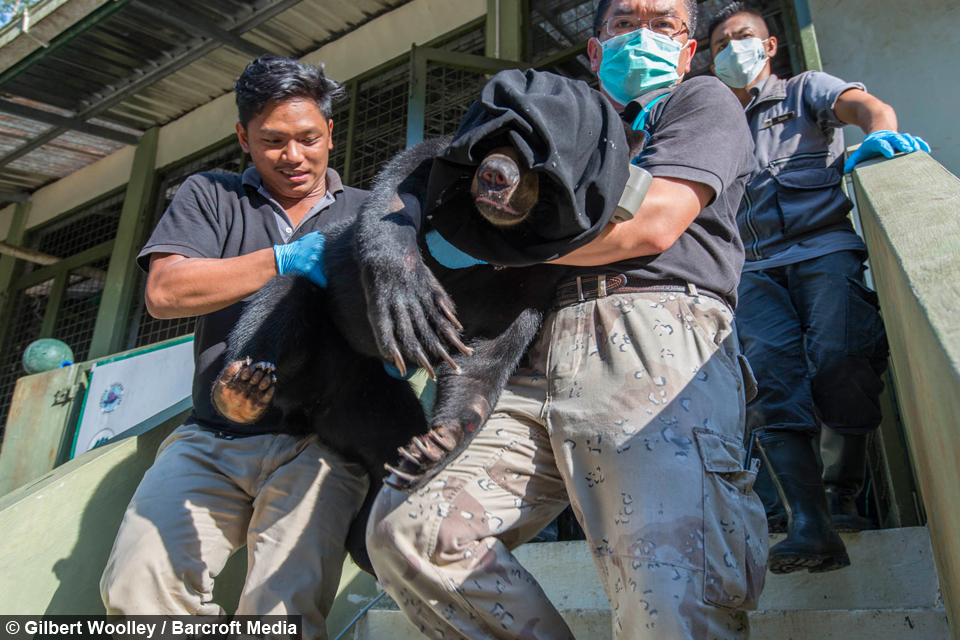Into The Wild: Rescued Sun Bear Released In Borneo
By Emily Wight @emily_wight
Scroll down for the full story
Videographer / Director: Scubazoo
Producer: Dan Howlett, Nick Johnson
Editor: Jack Stevens
‘Natalie' arrived at the Bornean Sun Bear Conservation Centre (BSBCC) four and a half years ago.
Just three months old, her mother had been poached and she was alone.
But over the past four years, the BSBCC has given her key survival skills to help her cope in the wild, and she has now been released into the forests of Lahad Datu in the northern state of Sabah.
Wong Siew Te, founder of BSBCC in Borneo’s Sabah state, said: “Natalie was a skinny sun bear cub weighing about 3kg when she first came into BSBCC.
"She was malnourished but remained active.”
He added: “She was extremely playful, active and enjoyed exploring the forest very much. What we noticed at that time was that she was a good tree climber.”
But he is now confident that she has the right skills to cope in the wild, describing her release as a “bittersweet joy”.
“I cared for her like a daughter. I had brought her for walks in the forest, fed her, taught her what food to identify and played with her," he told the Malay Mail Online.
"It was sad to let her go but I know she belongs in the forest.”
Since she arrived at BSBCC, Natalie’s progress has been tracked by a satellite collar.
In order to prepare her for a life back in the wild, she has had to develop crucial survival skills like foraging, climbing, nest building and socialising.
“Natalie grew up in natural forest enclosures in BSBCC with tall trees, dense vegetation and significant amounts of natural food items such as termites, earthworms, insects and honey from bee hives,” said Wong.
He added that Natalie escaped last year and managed to fend for herself for 37 days.
According to the International Union for the Conservation of Nature (IUCN), the global sun bear population may have declined by up to 30 per cent in the past 30 years - the equivalent of three bear generations.
And they are no less under threat in Borneo, where estimates suggest there are less than 11,000 in Sabah state.
Many are, like Natalie’s mum, poached for traditional Asian medicine, or fall victim to the effects of deforestation.
Dave Garshellis, co-chair of the IUCN’s Bear Specialist Group, said: “Habitat is lost mainly through conversion to oil palm.
"And poaching may either be for commercial or subsistence purposes. Both of these seem to be increasing, with no clear solutions in sight.”
And Wong said that in Borneo, some people capture sun bears - the smallest type of bear in the world - to keep as pets, unaware that this is illegal.
Natalie's progress was captured on camera by Gilbert Woolley, a photographer and editor from Bristol, UK, now living and working in Borneo.
Gilbert, 40, works for South East Asia filming and photography company, Scubazoo, which is dedicated to raising awareness of rainforest and marine conservation.
Natalie is one of 43 sun bears that BSBCC has kept in its protection and rehabilitated to prepare for a new life.
Garshelis said: “Releases of captive sun bears to the wild, while not the answer to the conservation problem, provide a great opportunity to make people aware of the declining status of this species, and to highlight how little we really know about how this species is adapting - or not - to its ever-changing environment.”
The BSBCC is currently working to secure the necessary funding to release another bear back into the wild.







